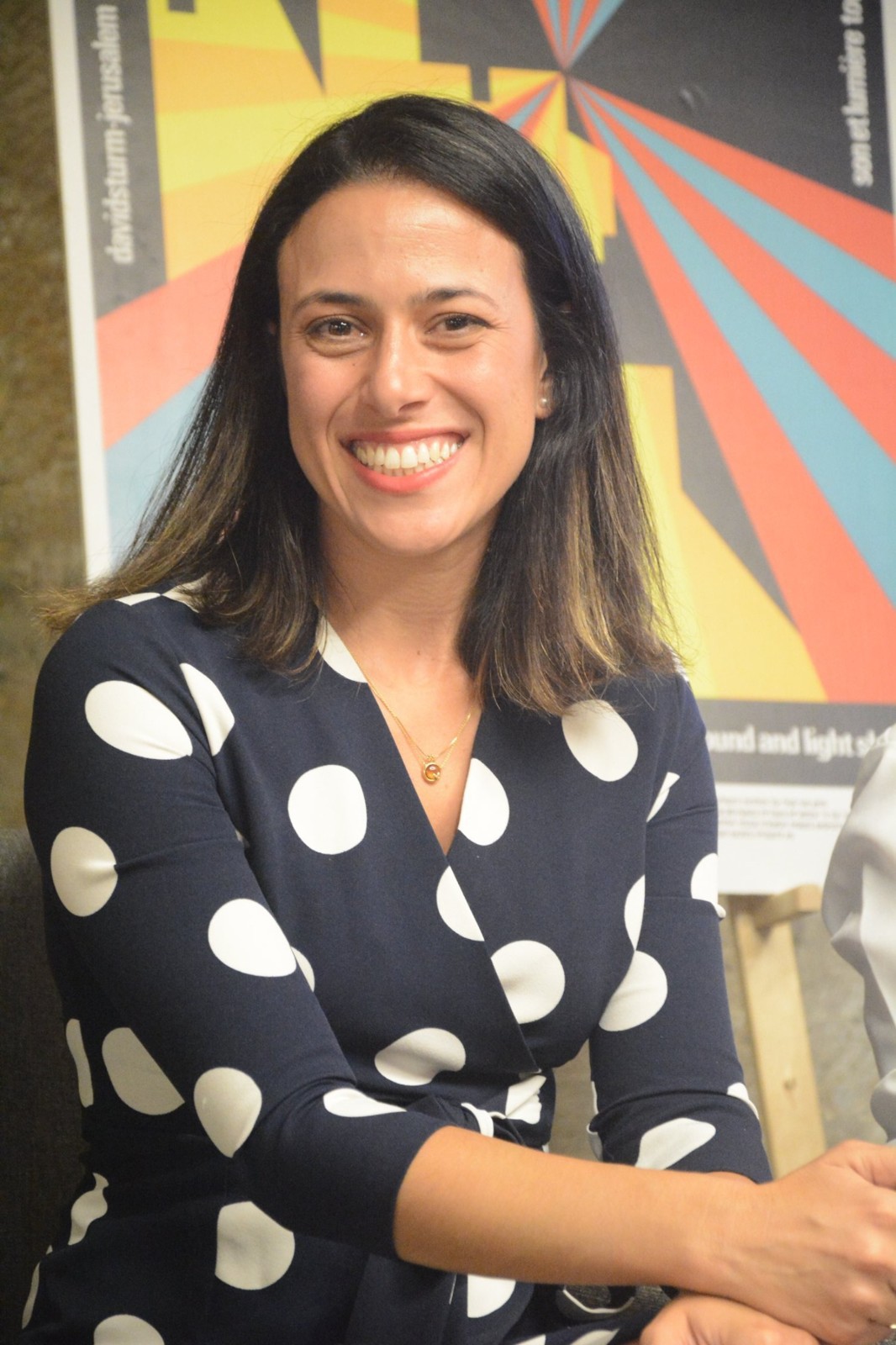December 28, 2020

Photo by Drew Beamer on Unsplash.com
As we near the end of a totally unpredictable year, it may seem a bit bold to predict what’s in store for 2021.
And yet one megatrend emerging from the Covid-19 crisis will influence everything from ecology to economy, healthcare to lifestyle in 2021: “WFH” – working from home.
For better or worse, WFH is now part of our vocabulary. This figures into many of the predictions you’ll read below from our experts.
HOW WE LIVE AND WORK
- Lior Fisher Shiloni, partner in lifestyle and design trend forecasting agency, The Visionary
 Trend forecaster Lior Fisher Shiloni of The Visionary. Photo by Michael Topyol
Trend forecaster Lior Fisher Shiloni of The Visionary. Photo by Michael Topyol
Fisher Shiloni and her partner, Nataly Izchukov, predict the homebody trend will continue boosting self-care products and practices: cosmetics, immune-boosting supplements, at-home workout systems, “stress baking,” organizing and nostalgia.
“We see a renaissance of nostalgia because in times of crisis, society has a tendency to think about what was great about the past,” she explains. “We’re even seeing content on Netflix that is so much more nostalgic and retro in its visual appearance.”
- Eitan Chitayat, founder and creative director of the Natie Branding Agency in Tel Aviv.
 Eitan Chitayat, founder and creative director of the Natie Branding Agency. Photo by Gilad Kavalerchik
Eitan Chitayat, founder and creative director of the Natie Branding Agency. Photo by Gilad Kavalerchik
With WFH dominating the landscape for the foreseeable future, empathy is the byword for 2021, predicts Chitayat.
“Personal interaction in 2021 is a whole new ballgame where the connections between people have to be adapted,” says Chitayat, who produced a video, “She’s that Woman,” with 12 WFH people in different locales.
“As you’re giving a presentation to a client online, your kid will come into the room needing attention. Or you’ll have a family obligation during work hours and your manager will have to understand,” he says. “We will all need to be more empathetic and flexible — not only in scheduling but in human terms.”
- Liraz Cohen Mordechai, founder and CEO of Fashionating by Liri
 Liraz Cohen Mordechai, head of Fashionating by Liri.
Liraz Cohen Mordechai, head of Fashionating by Liri.
WFH has changed how we dress ourselves and our homes, notes Cohen Mordechai, whose Israeli fashion lectures and tours have moved mainly online.
“Now our house is part of our accessories, part of the message we convey to the world about who we are,” Cohen Mordechai says. “Instead of using virtual backgrounds of beautiful houses on Zoom meetings, people will put money into their actual home décor.”
We’re not wearing pajamas to work anymore, she says. “We are dressing more comfortably but presentably. People are also looking for sustainable and locally produced items,” forcing local designers and merchants to offer and/or improve online sales platforms.
HOW WE ACCESS HEALTHCARE
- Shai Policker, CEO of MEDX Xelerator medical-device incubator
 Shai Policker, CEO of MEDX Xelerator. Photo courtesy of MEDX
Shai Policker, CEO of MEDX Xelerator. Photo courtesy of MEDX
The coming year will herald “unprecedented” advancement of solutions supporting remote monitoring, diagnosis and treatment.
“Covid created a significant boost to medicine moving away from hospitals as much as possible, and diagnostics and therapeutics moving into the home. You will see these innovations taking place much more than before,” says Policker.
One example is Synchrony Medical’s programmable inflatable vest for patients with chronic respiratory conditions like COPD. Developed in collaboration with Sheba’s ARC, this at-home device imitates hospital-based respiratory physiotherapy, a field in which there is a shortage of trained personnel in Israel and the United States.
- Eyal Zimlichman, deputy director general and chief medical officer of Sheba Medical Center and Chief Innovation Officer at its ARCInnovation Center
 Dr. Eyal Zimlichman, deputy director general and chief medical officer of Sheba Medical Center and Chief Innovation Officer at its ARC Innovation Program. Photo courtesy of Sheba
Dr. Eyal Zimlichman, deputy director general and chief medical officer of Sheba Medical Center and Chief Innovation Officer at its ARC Innovation Program. Photo courtesy of Sheba
“New diagnostics that are quicker and more accurate, such as 15-minute or even 1-minute Covid tests at low cost, should be in the market in the next year. That will be the next big thing apart from vaccines,” says Zimlichman.
Beyond Covid, Zimlichman sees increasing focus on AI applications for genomics, remote vital-sign measuring, radiology and digital pathology. “Sheba is one of the first hospitals in the world to go completely digital for pathology. Microscopes are out. This is a huge revolution,” he says.
“Telemedicine has been pushed forward by Covid and we’ll see it play a crucial role in ‘hospital at home’ and other types of services that are now face to face.”
- Freda Ganz, dean of the Faculty of Life and Health Sciences at Jerusalem College of Technology
 Freda Ganz, dean of Jerusalem College of Technology’s Faculty of Life and Health Sciences. Photo by Michael Erenburg
Freda Ganz, dean of Jerusalem College of Technology’s Faculty of Life and Health Sciences. Photo by Michael Erenburg
Ganz says healthcare staffing will be a big issue in 2021. Hospitals are strained to the limit and public health systems will struggle with the logistics of administering Covid vaccines widely and fast.
“When Covid first got here, everybody was worried about ventilators and beds, but the main concern actually ended up being manpower,” she says. “We saw this problem all over the world. In 2021, ICUs must have enough staff to handle patients and they need to be well-trained. This is a real problem now.”
HOW WE INNOVATE & INVEST
- Tzahi (Zack) Weisfeld, General Manager, Intel Ignite startup growth program
 Intel Ignite General Manager Tzahi (Zack) Weisfeld. Photo by Aviram Valdman
Intel Ignite General Manager Tzahi (Zack) Weisfeld. Photo by Aviram Valdman
Weisfeld says WFH is causing creative stagnation at companies large and small. Gone are in-person brainstorming sessions, water-cooler conversations, happy hours and other triggers for innovative ideas and collaborations.
“CEOs and founders will have to build a mechanism that allows real person-to-person interaction with working from home because everyone is suffering,” says Weisfeld.
On the positive side for Israeli startups, connections being forged in the United Arab Emirates present new funding and customer opportunities, adds Weisfeld, who recently met some of his Dubai investors for the first time face to face.
- Oded Eliashiv, CEO of InvestiNation equity crowdfunding investment platform
 Oded Eliashiv CEO of InvestiNation. Photo: courtesy
Oded Eliashiv CEO of InvestiNation. Photo: courtesy
“More and more, crowdfunding will be the source of capital,” predicts Eliashiv, who’s also managing partner of BuiltUp Ventures and of the B-Seed investment arm of Besadno Group.
“There is a need to provide sophisticated tools and an adaptable platform that enables startups to touch base with people, not just investors,” Eliashiv says.
The focus in 2021 will be impact investments in innovations related to pandemics, he predicts. “There is an urge to go back to business as usual but what everyone is ignoring is that these pandemics will come back again and again. That’s our new reality.”
HOW WE PROTECT CYBERSPACE Nir Chako, cyber research team leader, CyberArk Labs. Photo courtesy of CyberArk
Nir Chako, cyber research team leader, CyberArk Labs. Photo courtesy of CyberArk
- Nir Chako, CyberArk Labs’ cyber research team leader
Chako predicts deepfake dangers in 2021 due to businesses’ reliance on video communication with WFH employees. Deepfakes use sophisticated technology to replace a person in an existing image or video with someone else’s likeness.
“Video and recordings of executives and business leaders are readily available across marketing collateral, social-media channels, and more. Attackers could coordinate deepfakes from these properties as a strategic follow-on to phishing attempts — which will also move away from email to other platforms like chat and collaboration apps — to make manipulated communications feel even more authentic,” warns Chako.
“Attackers could also use manipulated videos of executive leaders on social channels to entice customers, employees, partners and more to click on malicious links – creating broader new attack avenues for malicious actors.”
- Maty Siman, CTO of Checkmarx
 Maty Siman, CTO and founder of Checkmarx. Photo by Yanai Rubaja
Maty Siman, CTO and founder of Checkmarx. Photo by Yanai Rubaja
As more organizations turn to the cloud to support communication with WFH employees, demand for cloud-based security will drive a new approach called infrastructure as code (IaC). Malicious attackers will try to exploit developers’ missteps in these uncharted and complex waters.
“To combat this, we will see a major concentration around cloud security training, IaC best practices, and additional spend allocated toward software and application security,” says Siman.
Tools for application security will need to work more rapidly, scale to cloud environments, and present actionable findings for developers to make quick fixes before malicious actors take advantage of new software vulnerabilities. Hackers will increasingly exploit components of open-source software –developed in a collaborative public manner – to gain entry into organizations.
- Gal Ringel, cofounder and CEO of Mine
 Gal Ringel, cofounder and CEO of Mine. Photo courtesy of Mine
Gal Ringel, cofounder and CEO of Mine. Photo courtesy of Mine
“Every year we provide our personal data to many new companies on the Internet as part of our daily lives. On average, there are 350 companies holding our sensitive data. Since Covid-19 started, this number increased by 55% due to a massive digital transformation,” says Ringel.
“In 2021, the phenomenon of consumer data exposure will increase dramatically. Ultimately, consumers will become more aware of who has what data about them, what are the digital risks that are associated with that and how to be safer online,” he says.
“You can already see an increase in consumer awareness. Since our product was officially launched in Europe and the US, less than a year ago, more than 100,000 users have used Mine to reduce their digital footprint by sending more than 1,300,000 deletion requests to over 150,000 businesses worldwide.”
HOW WE LEARN
- Avi Warshavsky, CEO of MindCET ed-tech innovation center of Israel’s nonprofit Center for Educational Technology
 Avi Warshavsky, CEO of MindCET. Photo by Sefi Shlevin
Avi Warshavsky, CEO of MindCET. Photo by Sefi Shlevin
“During the corona crisis, users of ed-tech have moved from being early adopters, typically 16% of the population, to the whole population overnight. This will raise the bar for expectations pretty dramatically,” says Warshavsky.
“Before the pandemic, the big investments in the US for ed-tech were in corporate training, higher education and management tools for schools and institutions. Now we see more investment in learning solutions for K-12 and in the field of social and emotional learning. The latter was a trend before, but the pandemic made it urgent.”
The coming year will see more emphasis on new learning platforms than on content due to unprecedented usage; more solutions for self-learning inside physical schools; and technologies enabling hybrid learning environments (home and school), which will likely continue through 2021 and beyond.
- Jonathan Braun, president of the World Union of Jewish Students

Jonathan Braun, president of the World Union of Jewish Students. Photo by Fran Friedrich
“I expect the higher-education establishment to become more accepting of distance education,” says Braun.
For example, instructors will accept that students working part time to pay tuition fees may not always be present in live online classes but will learn the material from recordings or notes posted afterward.
Braun predicts that the Covid crisis will lead to renewed interest in courses preparing students for jobs in healthcare sciences and education because people realize their value more than ever. He also predicts more anti-discrimination education “because people are becoming more extreme and polarized.”
HOW WE INTERACT WITH THE ENVIRONMENT
- Alon Tal, Tel Aviv University professor of environmental policy and deputy chair of Keren Kayemeth LeIsrael-Jewish National Fund
 Prof. Alon Tal. Photo by Gabriella Tal
Prof. Alon Tal. Photo by Gabriella Tal
Tal predicts the number of children and teens who die from diseases associated with contaminated water (roughly 2.2 million worldwide) will be 1,000 times greater than the number in that age group dying from Covid-19, and more than all Covid deaths in 2020.
More than 50 coastal cities, including several in Israel, will ban plastic in public areas, especially on beaches. However, ocean pollution will still pose significant hazards to marine life.
The new world record for heat (54.4 degrees Celsius/130 Fahrenheit in the summer of 2020 in Death Valley, California) will be shattered. The Israeli record of 49.9C/122F, measured near the Dead Sea in 2019, will also be broken, Tal predicts.
Five animal species will be declared extinct in the wild — most likely sub-species of oryx, leopard and rhino. In Israel, more than 20 square kilometers of open space and natural habitats will be converted into asphalt, apartments, shopping centers.
The price of solar energy and storage will drop an additional 5 to 10 percent, making renewable energy far cheaper than all fossil fuel alternatives.
By the end of 2021, says Tal, “there will be 84 million more people on the planet and Israel will have 185,000 more residents as it races towards crossing the 10 million citizen mark by the end of 2024.”
HOW WE DO BUSINESS
- Orna Kleinmann, managing director of multinational software firm SAP’s R&D Center in Israel
 Orna Kleinmann, managing director, SAP R&D Center in Israel; SVP at SAP Cloud Platform. Photo by Shai Yechezkel
Orna Kleinmann, managing director, SAP R&D Center in Israel; SVP at SAP Cloud Platform. Photo by Shai Yechezkel
“The Covid-19 global pandemic accelerated digitalization in almost all fields. The name of the game in the business arena should now, more than ever, be personalization of the customer experience,” says Kleinmann.
With everyone from school kids to the elderly switching to an online format for social interactions, learning, sports to shopping, approaching end consumers requires direct, specific and immediate online solutions.
“Our SAP Customer Experience (CX) portfolio has grown 20% faster than the industry average since the beginning of the pandemic. Going forward into 2021, I believe that the area of CX will continue growing and play a significant role in every intelligent enterprise.”
- David Laxer, founder of Laxer brand consultancy
 David Laxer of Laxer Brand. Photo by Daniel Tchetchik
David Laxer of Laxer Brand. Photo by Daniel Tchetchik
“The world is now split into two: the virus business and the antivirus business,” says Laxer. This means that “pharma and cybersecurity will both be very sexy moving forward,” pharma in the (corona)virus business and cybersecurity in the (computer) antivirus business.
In the retail sector, he adds, “If you’re not online you almost have no right to exist. Malls are closing, and ecommerce has gone up about 400 percent since the onset of the pandemic. This digitization is synonymous with cutting jobs. A lot of companies went completely digital and 20% of [traditional] jobs disappeared. There will be new jobs in the new economy but they must keep in mind that the consumer has changed and people are less frivolous in their buying habits.”
See full article: https://www.israel21c.org/16-expert-predictions-for-2021-the-year-of-the-homebody/




